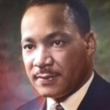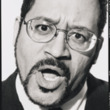They Can't Kill Us All: Ferguson, Baltimore, and a New Era in America's Racial Justice Movement
(Libby/OverDrive eAudiobook)
Available Platforms
Description
More Details
Published Reviews
Library Journal Reviews
One of the first books on the Black Lives Matter movement, Washington Post writer Lowery's debut draws upon journalism, memoir, and history. (LJ 10/15/16)
Copyright 2017 Library Journal.Library Journal Reviews
A political journalist with the Washington Post, Lowery was part of the team that won the 2016 Pulitzer Prize in national reporting for creating a database of fatal shootings by the police and using it to clarify why they shoot to kill and who the victims will likely be. Here he details the many violent events leading to #blacklivesmatter as well as the impact of that movement. Significantly, he contextualizes with a 50-year history of racial violence and personalizes with the story of his own life growing up biracial in Cleveland, the son of a black journalist. Important note: creating the database was his idea. With a 50,000-copy first printing.
[Page 53]. (c) Copyright 2016 Library Journals LLC, a wholly owned subsidiary of Media Source, Inc. No redistribution permitted.Library Journal Reviews
Washington Post reporter Lowery draws on his investigative reporting experience to tell the stories of black communities and their relationship to the police. This journey takes him from Ferguson, MO, to his hometown of Cleveland, OH, to Charleston, SC, and Baltimore as he chronicles the aftermath of the deaths of Michael Brown, Tamir Rice, Walter Scott, and Freddie Gray. By focusing on protesters, the families of the deceased, and other reporters, Lowery brings a much-needed human context to these events. The narrative is highly personal, since the author also reflects on his childhood in Cleveland, his identity as a black reporter, and his own arrest while covering events in Ferguson. Included are brief profiles of prominent activists, such as Johnetta Elzie, DeRey Mckesson, Bree Newsome, and Brittany Packnett, in order to explain their motivations. Furthermore, Lowery muses on the media's role in documenting the protests and the broken relationship between police and the communities that they serve. The work ends with an account of activist activities at the University of Missouri and protesters' thoughts on the future of the continued movement for equal social justice. VERDICT Highly recommended for those seeking additional clarity on current events.—Rebekah Kati, Durham, NC
Copyright 2016 Library Journal.PW Annex Reviews
Digging beneath the news headlines of police killings and protests, Lowery's timely work gives texture and context to a new era of African-American activism. Lowery, a young black Washington Post journalist with a bit of street cred after being arrested during a protest in Ferguson, Mo., found himself at the middle of the burgeoning Black Lives Matter movement. Though Lowery shares his personal and familial experiences with race, he is a reporter at heart, focusing on the stories of activists behind the protests. One of his most vivid subjects is Netta Elzie, a social media–savvy St. Louis native. As Lowery writes, she was already devastated by a beloved friend's unresolved killing by police when she first learned of Michael Brown's killing. She went to the scene and became a "chief on-the-ground correspondent" in Ferguson. Another strong voice in the book belongs to Bree Newsome, an NYU film school alum, who was politicized by the slaying of Trayvon Martin and first expressed her activism in voting rights advocacy in her home state of North Carolina. She came to public attention when, following the killing of parishioners of Emanuel AME Church in Charleston, she removed the Confederate flag displayed at the South Carolina statehouse in protest. Through their stories and those of others, Lowery conveys the shape and direction of a national movement. Agent: Mollie Glick, CAA. (Nov.) Copyright 2016 Publishers Weekly Annex.
Reviews from GoodReads
Citations
Butler, R., & Lowery, W. (2016). They Can't Kill Us All: Ferguson, Baltimore, and a New Era in America's Racial Justice Movement (Unabridged). Hachette Audio.
Chicago / Turabian - Author Date Citation, 17th Edition (style guide)Butler, Ron and Wesley Lowery. 2016. They Can't Kill Us All: Ferguson, Baltimore, and a New Era in America's Racial Justice Movement. Hachette Audio.
Chicago / Turabian - Humanities (Notes and Bibliography) Citation, 17th Edition (style guide)Butler, Ron and Wesley Lowery. They Can't Kill Us All: Ferguson, Baltimore, and a New Era in America's Racial Justice Movement Hachette Audio, 2016.
Harvard Citation (style guide)Butler, R. and Lowery, W. (2016). They can't kill us all: ferguson, baltimore, and a new era in america's racial justice movement. Unabridged Hachette Audio.
MLA Citation, 9th Edition (style guide)Butler, Ron, and Wesley Lowery. They Can't Kill Us All: Ferguson, Baltimore, and a New Era in America's Racial Justice Movement Unabridged, Hachette Audio, 2016.
Copy Details
| Collection | Owned | Available | Number of Holds |
|---|---|---|---|
| Libby | 1 | 0 | 0 |



































